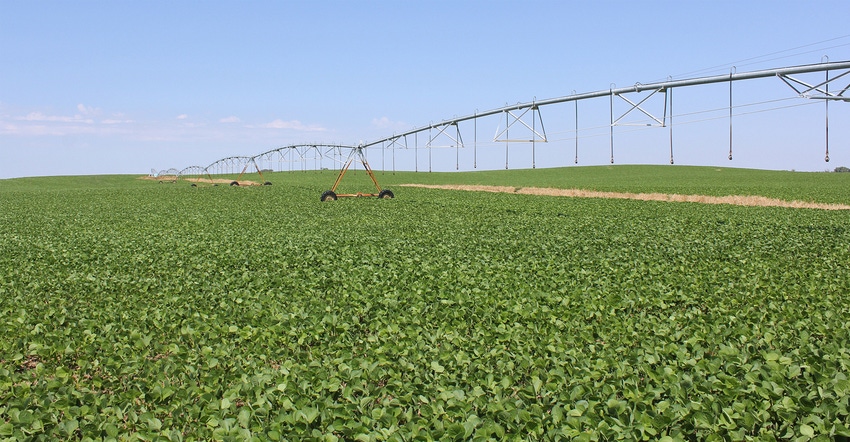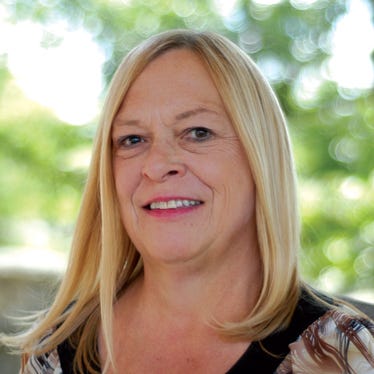
There’s a new precision agriculture tool available to growers and ag retailers for the 2019 planting and growing seasons.
It is the ServiTech Bridge Field Intelligence platform, which offers a subscription-based service for mobile devices and desktop applications that uses in-field sensors and analytics to give growers updates about the condition of their fields and crops.
Bridge is the first-of-its-kind software platform to help manage all aspects of a grower’s farm. It does not require the grower to own or install any equipment, and it allows growers to customize the platform based on their individual needs.
It can be scaled down to monitor only one field or scaled up to use in hundreds of fields, and it can provide analytics that help farmers make decisions about what crops to plant, what equipment to use, and when and how much to irrigate.
“ServiTech is pleased to introduce its Bridge platform, available now to growers who need to more closely monitor their crops and inputs,” says Greg Ruehle, president and CEO of ServiTech. “This is a revolutionary technology platform that will change the agricultural landscape, allowing growers to customize the view of their crops instantly, 24 hours a day. We are excited to see how the ServiTech Bridge impacts the lives of our customers.”
Plenty of features
Available features include soil moisture management, rainfall measurement, pivot status, well & bin status, ambient weather conditions, growth and weather modeling, and calibrated field imagery.
Bridge includes the ability to share access to the platform with farm managers and agronomists.
A new user can go online to build his or her subscription. The user creates or uploads a map of the boundary of each field that he or she wants to monitor, and the software assigns each field a unique identification number. The user can then choose what services he or she wants in each of those fields and the subscription price is based on how many of the available services are included in the subscription.
For Bridge subscribers, ServiTech does a soil texture analysis and a manual calibration of each probe to monitor actual inches of water. Growers do not have to worry about logging growth stages, rainfall events or making calibration adjustments.
Ruehle says that ServiTech technicians will install any needed sensors and come back in the fall to uninstall equipment such as moisture probes, which can be a problem at the time of harvest.
“A combine will actually eat them,” he says. “So, it’s best to get them picked up ahead of harvest. That gives us time to go over them and get them refurbished and ready to install for the next season. Other sensors, like pivot or well monitors and bin monitors, can be installed once and left there.”
Continuous monitoring, notification
Bridge looks at a combination of readings from individual sensors to create a simulation of where the moisture is in the soil profile. It adjusts for the root zone of an individual crop to make sure that it is reporting only the water in the profile that the crop can access.
Crop growth stage is automatically updated to create a forecast for water use and predict how many days of water remain at each location.
“It can send the grower a message that says without rainfall or turning the pivot on, the crop will be at a stress point in so many days. Then the grower can decide when to turn the pivot on,” he says.
There is also a pivot status monitor available, which tracks pivot location, direction and on-off status, verifying that the pivot is moving or has stopped. It relays status every 15 minutes.
Bridge uses a wireless tipping rain gauge that measures and reports rainfall data in real time to a mobile device or desktop.
The program measures and reports rainfall data, tracks rainfall for the entire year, and delivers the information to a laptop, tablet or phone.
Another service available is a weather station that measures and reports ambient weather conditions at the edge of the field or at the farmstead. It uses wireless sensors to deliver reports on wind speed and direction, air temperature and relative humidity, solar radiation and barometric pressure, and real-time 24-hour and yearly rainfall measurements.
All sensors within its range can send data to a single Gateway, which uploads the data to a cloud from which it is reported back to the grower’s device.
ServiTech Bridge Irrigation Well & Motor Status is a telemetry subscription service that monitors and relays the status of irrigation pumps, bin fans, and other motors within range.
ServiTech Bridge Grain Bin Fan Status is a telemetry subscription service that monitors and relays the status of a bin fans, and other motors within range.
It attaches magnetically to metal housing and reports the on or off status of irrigation wells, pumps and fans.
ServiTech Bridge Field Imagery is a multispectral field imagery subscription delivering weekly images to your mobile device or desktop.
It comes complimentary with any in-field sensor subscription or available as a separate low-cost standalone service on any field.
ServiTech Inc., the nation's largest crop consulting and agricultural laboratory cooperative, is based out of Dodge City.
This article includes information supplied by ServiTech.
About the Author(s)
You May Also Like






